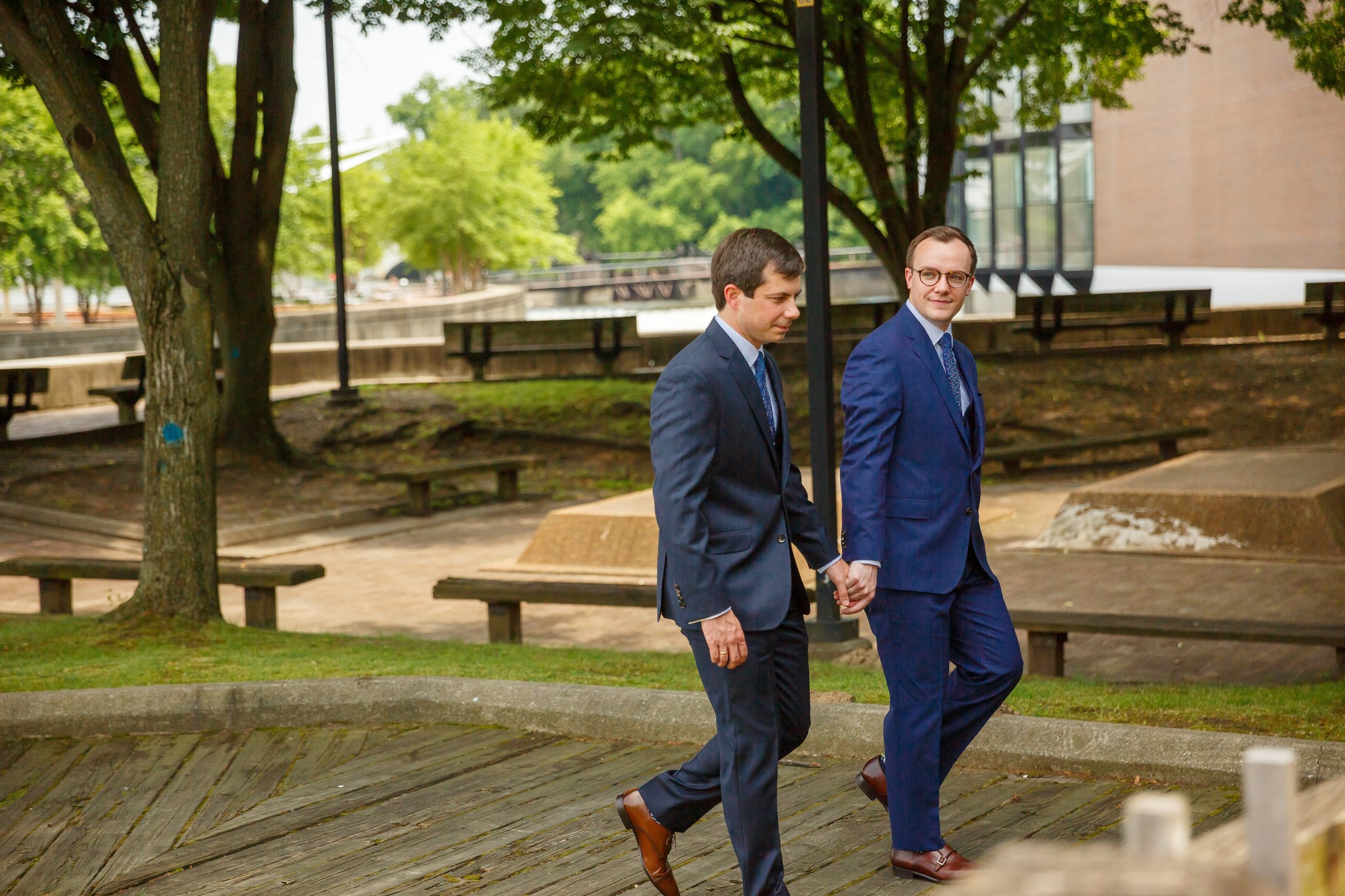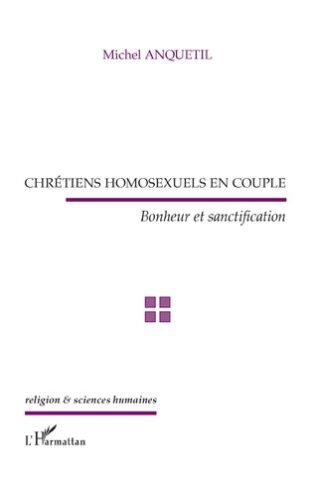Last weekend, I tweeted out what I thought was an innocuous, and obvious, tweet: a statement of fact. The Catholic League had tweeted what I considered an ungracious comment about the marriage of Pete Buttigieg, the openly gay Secretary of Transportation. They wrote that he while was legally married, the marriage was a “legal fiction.”
That the statement was self-refuting didn’t seem to bother anyone, but to me, it seemed like another gratuitous attempt to denigrate LGBTQ people. Basically, it was saying that Pete Buttigieg’s marriage to his husband Chasten didn’t exist. In that way, it reminded me of Catholics who say that transgender people, in essence, don’t or shouldn’t exist. Frankly, I felt a sense of compassion for Secretary Buttigieg, who has endured endless homophobic comments in the past few years.
So, I tweeted out an obvious response: “Pete Buttigieg is married.” As much as anyone in this country whose marriage registered in City Hall, he and his husband Chasten are legally married.
The reaction was near hysteria. I was called a heretic, an apostate, a false priest, a serpent, a dog, a bitch, a wolf, “Prophet of Satan” and so on, as well as what young people today call the “F-slur,” and far worse. (Feel free to peruse Twitter, if you can stomach it.) Demands were issued for my immediate laicization, and so on, and I received a few death threats at my office, as well as countless threatening direct messages through my other social media accounts.
All this is a small window into what many LGBTQ people—married, single and somewhere in between—face every day.
For a brief moment, “Fr. Martin” was trending on Twitter, which, given that it led people to homophobic comments from Catholics, did not please me one iota.
Initially, it was hard to understand the hysteria over a statement of fact. To me, it was like saying the sun will rise tomorrow. Secretary Buttigieg is, like it or not, legally married. You may not like the idea of same-sex marriage, you may even vigorously oppose it, as the Catholic Church does. But it is not any challenge to church teaching to say that as far as the laws in the United States are concerned, Pete and Chasten Buttigieg are legally married, and so are countless other same-sex couples.
Perhaps, I thought, the hysteria was because the original tweet wasn’t precise enough—though it seemed a clear statement prima facie. So I clarified it the next day, saying that Secretary Buttigieg was legally married and that his marriage was recognized not only by the state, but by his church. (He and his husband were married in the Episcopal Cathedral of St. James in South Bend, Ind., in 2018.)
Yet the hysteria continued. “Dear heretic: repent,” was a typical comment. (By then, most of the comments were ad hominem.)
One question is why other marriages that are not Catholic sacramental marriages, but nonetheless civilly recognized, are accepted by Catholics as marriages. When a Jewish couple is married by a rabbi in a synagogue, most Catholic guests will say, “Mazel tov!” not “You’re going to burn in hell!” When an atheist couple ties the knot before a justice of the peace, most Catholic acquaintances will say “Congratulations!” not “You’re Satanic!” When a Universal Life minister presides over a friend’s wedding, most Catholic co-workers will say, “How was the wedding?” not “Repent!”
Usually, in the case of non-Catholic weddings, most Catholics say to themselves, “Even though it’s not a marriage in my religious tradition, they’re legally married, so I will respect their marriage and be happy for them.”
Of course, the difference is obvious: the idea of two people of the same sex getting married repulses some people. And again, I’m not challenging the church’s teaching against same-sex marriage, but pointing out the vast difference in the reactions for marriages outside the church. In one case, tolerance or acceptance; in the other case, outrage or hysteria.
There is something about same-sex marriage, and same-sex relations, that unhinges some people, that infuriates them, that drives them to hysteria, enough to threaten death to people who say that it even exists.
By now, I’m used to these kinds of reactions. When necessary, I try to clarify comments that may have been in any way confusing, but at the same time, no amount of clarification will be enough for people whose rage is fueled by homophobia and hatred. No issue enrages some Catholics—not the Latin Mass, not the Synod, not Pope Francis, not women’s ordination—more than LGBTQ people. It is what sociologists call a “moral panic.”
More basically, it is hatred. And it is a hatred that seems bottomless. It’s hard to read tweets like “Jimmy, you’re such a little F—t” and believe that this person is acting out of any sort of Christian impulse. This is not Christianity: this is playground bullying. And it’s something that LGBTQ people have long experienced: hatred of the other.
Whenever this happens, I try to remember two things: First, whenever you extend mercy to people on the margins (or even recognize their existence), some people will be enraged. In the Gospel story of Zacchaeus, Jesus encounters the chief tax collector of Jericho, who would probably have been on the margins of his community, since he was seen as colluding with the Romans and suspected of skimming money off the top (Lk. 19:1-10).
Passing through the town one day, Jesus calls out to Zacchaeus, who is perched in a sycamore tree: “Hurry down for I must stay at your house tonight!” It’s a public sign of welcome.
What is the response of the crowd? Luke tells us in one of my favorite lines in the Gospels: “All who saw it began to grumble.” And this was in front of Jesus! When I asked him about this passage, the late New Testament scholar Daniel J. Harrington, S.J., said that the Greek word panta, which means “all,” would have included the disciples as well. Showing mercy to those on the margins, even showing them a modicum of respect, always infuriates some people—including some of Jesus’s own followers.
Second, I recall what a psychologist told me a few years ago, when I first started ministering with LGBTQ people. I was giving a talk drawn from my book Building a Bridge, about LGBTQ ministry, in an affluent Connecticut suburb, to a largely welcoming parish. Ninety-nine percent of the parishioners were open, friendly and attentive, and also posed some great and challenging questions, which I was happy to answer.
But afterwards, a well-dressed woman in a Chanel suit came to the book-signing table and started—literally—screaming at the top of her lungs, “You disgust me! You ought to be ashamed of yourself!” Again, neither my book nor I had challenged any church teaching.
The next day, I spoke with my psychologist friend, since this was a new and frankly disturbing experience for me. I said, “Where does that kind of rage coming from?”
“From her,” she said simply.
It is one thing to disagree, it is another to be in a rage, she said. The woman, she suggested, was most likely dealing with some intense and unresolved feelings about her own complicated sexuality. “Otherwise,” said the psychologist, “she would have simply asked you a question.”
Perhaps she harbored lesbian feelings that frightened her. Perhaps a family member was gay. Perhaps another woman had once expressed romantic affections for her. In such cases, the person, terrified by their inner turmoil, seeks to impose “order” on the outside world. And often their rage, which is too overwhelming to be directed inwards, is directed outwards. That doesn’t describe everyone who responds in this way, but it certainly describes some.
In the past few years, in fact, I’ve gotten several notes (perhaps four or five) from young men saying, in essence, “I’m sorry I attacked you on social media a few years ago. I was young and dealing with my own sexuality. But I’ve just come out and am sorry.”
Showing mercy to those on the margins, even recognizing them as human beings, always infuriates some people—including some of Jesus’s own followers.
So, despite all the anger, Pete Buttigieg is still legally married to his husband Chasten, and they have two young children whom they love. Those are simply facts. You can be against same-sex marriage, as you may be against two people not getting married in a sacramental union in the church. But they are still legally married.
As for the hatred directed to me, from all manner of homophobic sources, both inside and outside the church, I’m getting used to it. Perhaps I wouldn’t go as far as Franklin D. Roosevelt, a personal hero, did in 1936, but his courage against hatred inspires me.
Speaking about the wealthy financiers who had lined up against his New Deal, which aimed to help the struggling poor during the Great Depression, Roosevelt said in a campaign speech: “They are unanimous in their hate for me, and I welcome their hatred!” I don’t welcome it, but I see it as a necessary cost to pay for treating LGBTQ people with the “respect, compassion and sensitivity” that everyone deserves.
All this is a small window into what many LGBTQ people—married, single and somewhere in between—face every day. And in these situations, we have two places to stand, as in the Gospel story of Zacchaeus. We can stand with the crowd who grumbles and issues death threats, or we can stand with Jesus, who sees Zacchaeus, calls to him and who treats him with dignity.



